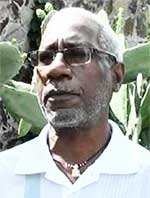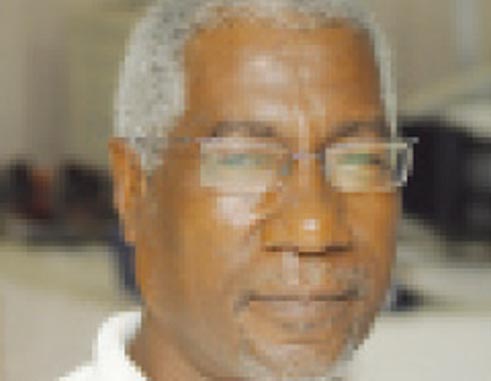
Once upon a time, May 25th was observed everywhere as African Liberation Day, commemorating the date the Organization of African Unity (OAU) was founded in Ethiopia in 1963.
That was a time when African nations conquered, occupied and divided between 12 European states and the USA (at the Berlin Conference in 1885) were either gaining their ‘independence’ from the colonial powers, or waging liberation wars for their freedom.
In the 1970s, the likes of Ghana, Tanzania, Kenya, Botswana, Uganda and others had already been ‘given’ their independence by Britain, but the liberation wars continued other parts of the continent, particularly in Southern Africa — for Majority Rule in South Africa, Rhodesia (now Zimbabwe), Mozambique, Angola and Namibia.
Back then, the thirst for liberation was deep in Africa.
Nelson Mandela was still in jail and growing demands for his release were supported widely internationally, that global focus also helping keep world attention focused on the overall Southern African liberation struggle – and others elsewhere on the continent.
African Liberation Day in the 70s and 80s was observed here annually, with Rastafarians and progressive political forces joining to sponsor panel discussions and lectures and to arrange solidarity rallies in different parts of the island.
There was back then too, a greater level of interest and awareness in the African liberation struggle.
Caribbean people annually signed resolutions and petitions for Mandela’s release and in support of his African National Congress (ANC), as well as other liberation movements such as the FRELIMO of Mozambique, the MPLA of Angola and the SWAPO of Namibia.
But after all these liberation movements won their valiant freedom fights and took on the herculean task of building new countries and people, global interest in African liberation naturally waned, as the new task was one of national reconstruction through political and economic independence, accompanied by the necessary social changes.
One of the lasting legacies of the Berlin conference was the carving-up of Africa into some 50 pieces, a division that is itself a natural impediment to the African Unity that was envisaged when the OAU was formed.
The OAU transformed into the African Union (AU) in 2002 – but, 17 years later, direct interest in African affairs is also being expressed in new forms here, now more personal than organisational.
Today, the average person of African descent in other parts of the world no longer confronts the direct expressions of racism like long ago, more are ready to identify with Africa and most will take pride in certain aspects of their African roots.
But the highlight of Caribbean interest in Africa today is mainly crystalized in the growing Reparations movement, which seeks atonement from Europe – and now from the USA — for descendants of Africans captured, shipped and sold into slavery in new lands way beyond their lands and shores.
Besides, information has become so readily available in these times and access to information about Africa is at the fingertips of anyone with a cell phone or computer hooked to the internet, as well as in the 24-hour availability of instant news from and about Africa available through the international news networks of the mainstream media and the alternative media, as well as through relevant searches on the World Wide Web.
Many Caribbean senior citizens still miss the nostalgic old days and the sense of historic accomplishment felt by those who actually lived to see Mandela ‘live’ on TV, walking hand-in-hand and side-by-side with his wife Winnie, out of prison and into freedom — and his eventual formal swearing-in as South Africa’s first Black President in 1994.
But Africa has long moved on. The wars there today are less about liberation as contending forces battle for political power and not against colonial domination, to take or break state power and not necessarily for national economic liberation.
Armies in several African states have over the years propelled themselves into office either following their leading roles in national liberation fights, or through coups, today seen in ongoing events in Algeria and Sudan and earlier in South Sudan and Egypt.
In South Africa, 25 years after Mandela and the ANC won the first democratic election after the end of Apartheid (1948-94), inequality is still as pronounced as ever: whites still own over 70% of the land while the rich economy is still overwhelmingly dominated by whites.
And there still exist communities in today’s South Africa proud to say they are ‘without any blacks among us’ and political parties that ‘do not allow white membership.’
The dynamics of change in Africa today are such that solidarity is being measured through entirely new yardsticks.
Many African nations today struggle against internal enemies (Nigeria, Somalia and Kenya, for example), while oil-rich post-Gadaffi Libya is now up against both an internal threat of an armed opposition force and the extensive migrant schemes that see immigrants from neighbouring states seeking better pastures in Europe captured in transit and sold into slavery.
Like the Non-Aligned Movement, the Arab League, the Organization of American States (OAS) and other similar entities steeped in regionalism, the AU also has its internal battles to confront, among them the steep nationalism that drives most nations’ agendas.
The OAU and the AU have one thing in common: their commitment to African Unity.
The pace of that unity, however, is always dictated by the speed of internal developments in each country, instead of by united responses to common external threats.
Like yesteryear, there are still those African states and leaders behaving and (therefore) being treated and considered as modern-day facilitators of old-time slavery in all its new, disguised and naked forms.
But then, since no one can predict what results elections will yield in most African states, there’s no way of escaping this reality, which can only be overcome according to the size of the counterweight within the AU itself.
That it’s taken a Caribbean initiative to ignite or awaken AU interest in seeking or supporting demands for Reparations from Europe for Slavery and Native Genocide speaks loudly about what used to be whispered about just how much things have changed between the wars and struggles for African liberation and the ongoing, relentless battles for nation-building and economic independence.











sdffqf